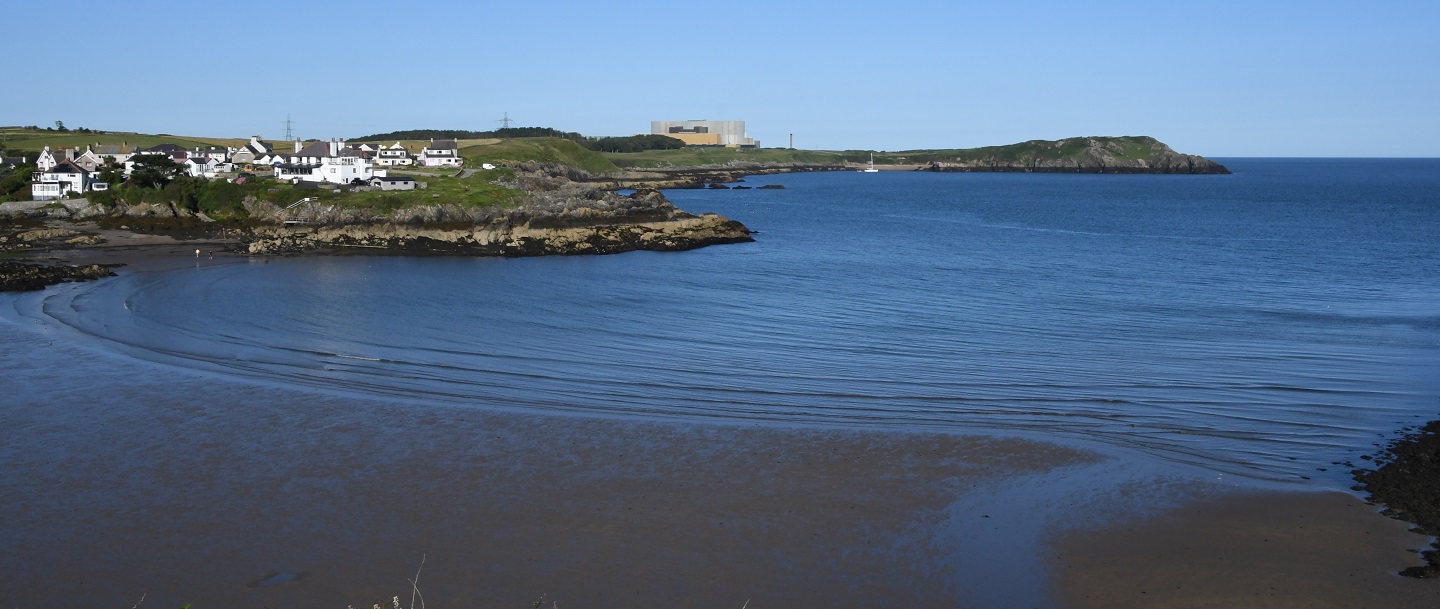Scientists help improve bathing water quality at Anglesey beach

Bathing water quality at Cemaes Bay has been classed as ‘good’ following the implementation of a model devised by Aberystwyth University.
25 November 2020
The quality of bathing water at a popular north Wales beach has been officially rated ‘good’ after implementing an innovative model developed at Aberystwyth University.
Water quality at Cemaes Bay on Anglesey had been classed as ‘poor’ in 2016 and 2017, which meant it was unsuitable for bathing, and ‘sufficient’ in 2018 and 2019.
In November 2020, however, the Welsh Government announced that Cemaes Bay had achieved ‘good’ in the annual Bathing Water Quality classifications.
The improvement is largely attributed to the work of the Cemaes Bay Bathing Water Task Group which was established in 2016 to bring together the Isle of Anglesey County Council, Natural Resources Wales (NRW), the local community and others including Aberystwyth University.
In 2018, the Isle of Anglesey County Council adopted an innovative bathing water model developed specifically for the quiet, enclosed and sheltered bay at Cemaes by a research team specialising on bathing water quality and prediction based at Aberystwyth University’s Department of Geography and Earth Sciences.
Commenting on the newly-announced status of Cemaes Bay’s bathing waters, Professor Dave Kay who leads the Aberystwyth team said: “We are all delighted with the ‘GOOD’ EU classification of Cemaes Bay. It has been a privilege to work with Isle of Anglesey County Council, the Llanbadrig Community Council and Natural Resources Wales to assist in predictive modelling at this bathing water and we are grateful to the Ireland-Wales Interreg programme who provided the funding for this work as well as earlier work in Swansea Bay”.
The work was funded as part of the Acclimatize INTERREG project, led by University College Dublin, and is deemed to have played a key part in improving the situation at Cemaes.
Annwen Morgan, Chief Executive of Isle of Anglesey Council and Chair of the Cemaes Task Group said: “Changes to river levels flowing into the bay at Cemaes as a result of rainy weather have affected bathing water quality in the past. The Cemaes bathing water model is valuable because it enables us to improve how we inform and protect bathing water users after rainfall.
“Our officers run the model 3 times a day Monday-Friday and twice a day on weekends and public holidays. Bathing water quality advice is then given to the public through our dedicated Twitter account - @traethcemaes - and signs at the beach itself.
“We’re very glad to see that this modelling work, combined with the collective efforts of all involved, is bearing fruit – bringing benefits to the entire community as well as visitors.”
Derek Owen, Chair of Llanbadrig Community Council, has been heavily involved in the work of the Task Group to date and welcomed the latest announcement: “This improvement in bathing water quality is good news for the local economy as well as the obvious public health benefits of having a high quality environment.
“Coastal communities like ours rely heavily on tourism, and people come here to enjoy clean beaches and good bathing water. So the 2020 classification will be very much welcomed by local businesses and people who live in Cemaes and the surrounding area.”
He added: “We were clearly very concerned when the standard had dropped to poor back in 2016. But I must say that, since the Task Group was set up, we’ve seen a tremendous effort by all parties. It’s been encouraging to see our public bodies working so closely with us in the community, and I’m extremely pleased that this work is clearly paying off.”
Bathing water research
Research by Professor Dave Kay and his team at the Centre for Research in Environment and Health (CREH) at Aberystwyth University since 1999 has been used in drafting bathing water regulations for the World Health Organisation and the European Union.
Their work has led to new health-evidence-based water quality standards implemented throughout the EU and affecting over 24,000 bathing waters, helping to maintain higher standards of health protection as well as safeguard the economic contribution of beaches.
Professor Kay and his team are currently involved in projects to test and improve the quality of bathing water in north Pembrokeshire and south Ceredigion, which is also funded by the Ireland-Wales Interreg programme in partnership with University College Dublin.



